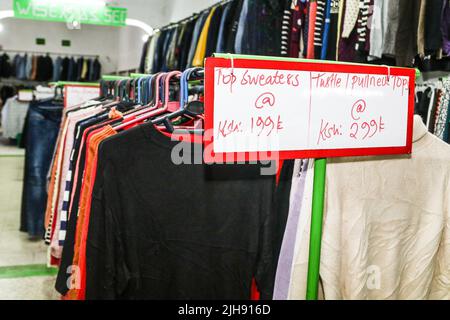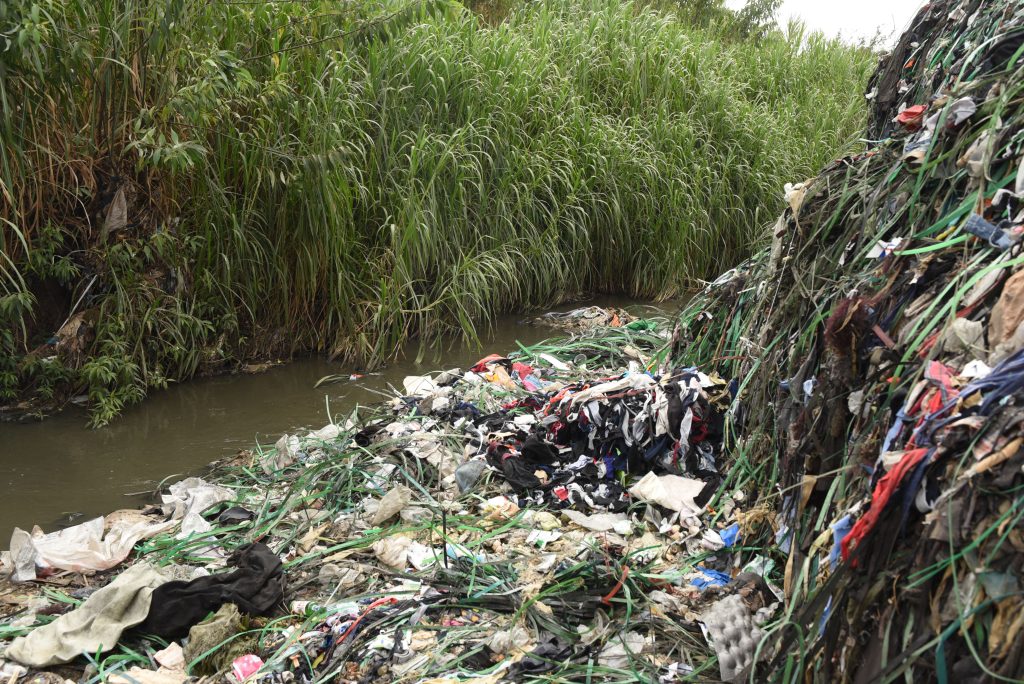Importers of 'mitumba' should be held responsible for the waste
$ 18.00 · 4.5 (176) · In stock

Doing away with secondhand garments is easier said than done because people do need access to affordable clothing. Founder of Nairobi-headquartered Africa Collect Textiles (ACT), Elmar Stroomer, believes it is time to add a waste tax on imported items and the funds should be invested in high-end collection and recycling infrastructure.

PDF) Supply chain challenges for sustainability: the case of waste textiles as raw materials

Nakuru, Kenya. 16th July, 2022. Bales of second-hand clothes, locally known as ''mitumba'' are seen at a warehouse. Fast fashion is being blamed for increased textile waste accumulating in garbage dumps across

Mitumba Association of Kenya denies Second Hand Clothing imported into Kenya has any Environmental Impact - Clean Up Kenya

Second-Hand Clothing Business in Africa
The Mitu-Bell Case As a Legal North in the Progressive Realisation of Economic, Social, and Cultural Rights at a Time of Climate Friction and Land Usage Practices in Kenya

PDF) Supply chain challenges for sustainability: the case of waste textiles as raw materials

PDF) The Retail Second-hand Clothing Sector in Developing Economy: Case study of Liberia

Why Kenya is dumping ground for 'mitumba' clothes - NTV Kenya

PDF) Unravelling the Relationships between Used‐Clothing Imports and the Decline of African Clothing Industries

Textile Value Chain- April 2021

Importers of 'mitumba' should be held responsible for the waste this sector creates

EAC blows hot and cold in war against trade in used clothing - The East African

Fast Fashion: Could traditional clothing be the answer? - We Are Restless
